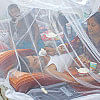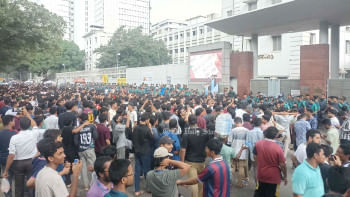Alarming rise of dengue needs urgent action

The dengue situation in the country is getting worse with each passing day. According to the Directorate General of Health Services (DGHS), in May this year, the number of dengue patients was 1,036, which is five times higher than the same month in 2019, when the country saw over 1,00,000 dengue cases – the highest in our history. Meanwhile, last year, when the highest number of people died from the dengue outbreak, there were 163 cases in May. The high number of cases this May points to a possibly deadly situation looming on the horizon.
While previously dengue was considered a seasonal disease, with most cases being recorded during the monsoon, now cases are being reported throughout the year. Last year, a majority of the dengue infections were reported in the second half of the year, with over 50 percent of total cases reported in October. This means that if we cannot contain the spread of the virus right now, we may experience another deadly outbreak in the later part of the year. And with the number of cases being recorded already, the situation seems quite dire. The presence of four distinct serotypes of the virus – DENV-1, DENV-2, DENV-3 and DENV-4 – in the country may also increase the severity of the infections. Therefore, we have no time to waste and must take urgent action to control dengue.
The authorities, however, do not seem like they have taken any preparations in this regard. So far, no notable action was taken by the two city corporations of the capital, although the LGRD minister had said that he had instructed them to take all the measures – such as preventing waterlogging, making people aware – in advance to prevent dengue outbreak. Our experts' call to all relevant organisations, including city corporations, municipalities, and union parishads, to play a strong role in controlling the disease also seems to have fallen on deaf ears. Such systematic failure is unacceptable.
The authorities should immediately identify the dengue hotspots across the country, start conducting regular anti-mosquito drives, prevent waterlogging, destroy all possible dengue breeding grounds and conduct regular awareness campaigns. Engaging the communities with their work is crucial here. They must also build a robust dengue surveillance system so that the actual number of dengue cases in the country can be recorded, without which making proper interventions is not possible.


 For all latest news, follow The Daily Star's Google News channel.
For all latest news, follow The Daily Star's Google News channel. 









Comments